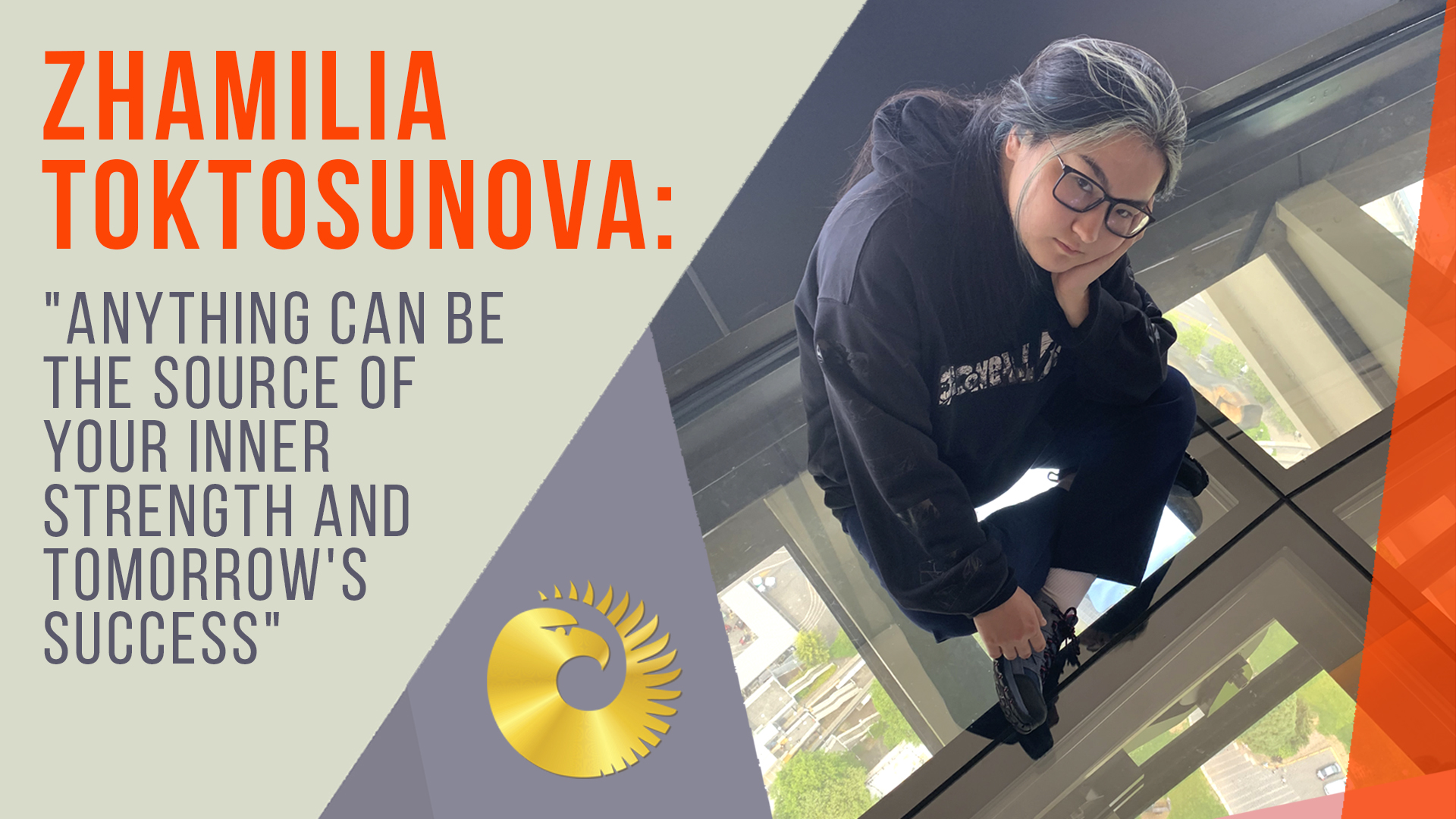Zhamilia Toktosunova: "Anything can be the source of your inner strength and tomorrow's success"
September 4, 2023
My name is Toktosunova Zhamilia, and I am a fourth-year student majoring in the Anthropology Department. I aspire to pursue osteoarcheology in the future that is why I chose AUCA to get my education.

In 2022, I was admitted to the SUSI program. SUSI for Young Women Leaders is an intensive four-week academic program which aims to provide groups of undergraduate student leaders with a deeper understanding of the United States while simultaneously enhancing their leadership skills. The Institute consists of a four-week academic residency with a balanced series of seminar discussions, readings, group presentations, and lectures. I initially developed an interest in the topic of ecology, which was the central theme of this program. Subsequently, I read about how global warming affects archaeological monuments, and it left a profound impression on me. In the application form of SUSI, we were required to express our views on environmental issues and relate them to our field of study or activity. Perhaps my original topic and approach played a role in my acceptance into the program.
In this case, I did not choose the university; it was predetermined by the organizers of SUSI. I appreciated the university's proximity to nature, extensive campus grounds, unique lessons, and cultural exchange opportunities. Interactions with international students on campus were especially enjoyable.
The program schedule was as follows: classes started at 9 am, with morning sessions focusing on leadership, entrepreneurship, and project organization. Lunch was often served indoors, right in the classroom. The highlight was the availability of gluten-free biscuits and abundant seafood (the program was in Washington State). After lunch, we attended lectures on social media marketing (SMM), US culture and history, and public speaking skills. Most of our lecturers were successful women in their respective fields, often from ethnic or sexual minorities, serving as inspiring examples of what we can achieve. Other memorable experiences included field trips across the state, volunteering at a food bank, forest hikes with a ranger, learning about small-town urbanism, and understanding the perils of territorial racism. The days were filled with activity, and upon completing the program, you realize how profoundly enriching the experience was.
Three key takeaways emerged. Firstly, a solid grasp of the English language was essential. Many participants were hesitant to speak English, and I often acted as an interpreter between multiple individuals. Thanks to courses that I took at AUCA it helped me easily understand any topics that should be translated. Secondly, understanding the cultural aspects was crucial. The US and Kyrgyzstan have distinct worldviews and approaches to addressing issues. I attribute my understanding of colonization to either FYS or anthropology courses, which enhanced my ability to connect with new friends. It was one of the most discussed subjects in the program and posed challenges for participants who were unfamiliar with it. As AUCA serves as a platform for diverse opinions and voices, I learned a great deal about topics considered a bit sensitive in society.
The overarching lesson was to be a leader, even in the smallest and seemingly insignificant sphere. This mindset significantly helped participants progress and build on their successes. For me, anthropology was my avenue, while others excelled in blogging or debating. Anything has the potential to serve as a source of inner strength, propelling you toward future success.
